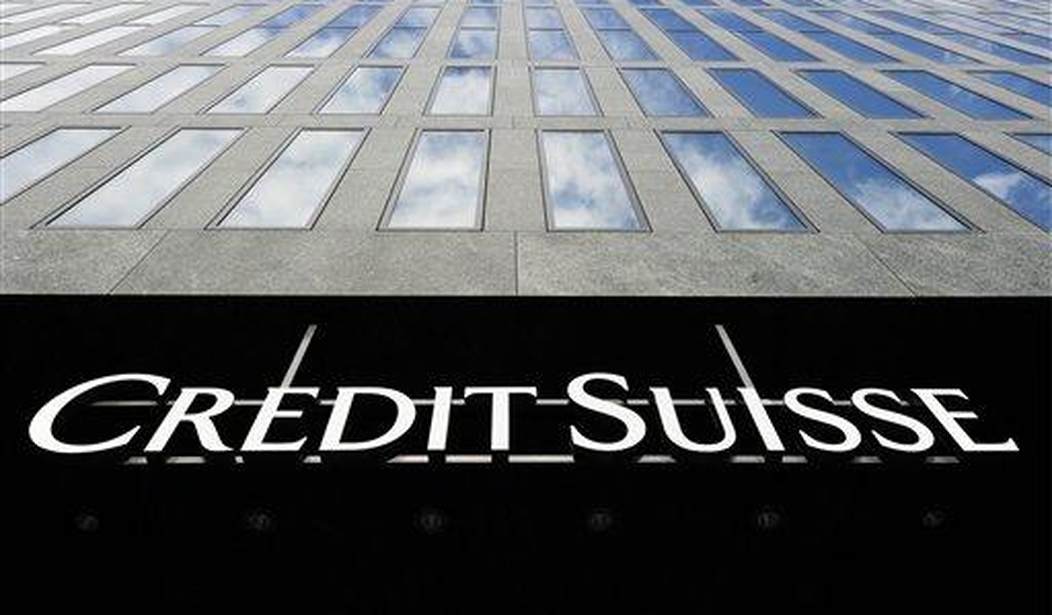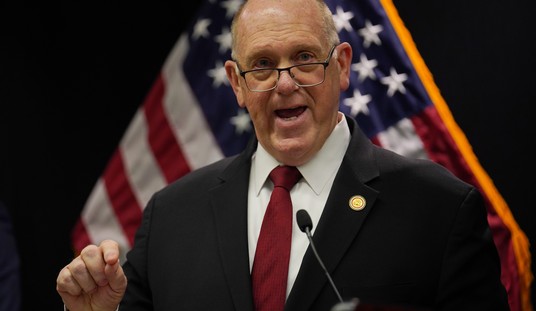A Swiss bank helping Americans evade taxes? Get. Out. Stunned, I am, stunned that gambling takes place in the casino!
Of course, this report from CNBC matters a little more this week, given the failure of Credit Suisse and the rescue sale to UBS imposed on it. It also matters a little more because the same management that ran Credit Suisse into the ground also pled guilty to these charges in 2014 and promised to repent. And that could impact the stability of its new owner, which would become a huge crisis in the banking system:
For years, the bank has provided a safe haven for wealthy American clients to hide assets from the IRS — even after it was caught and prosecuted for doing the same thing more than a decade ago, according two former Credit Suisse bankers who spoke in exclusive interviews with CNBC and are working with the U.S. government as whistleblowers.
The bank notoriously pleaded guilty in 2014 to criminal charges for “knowingly and willfully” helping thousands of U.S. clients conceal their offshore assets and income from the IRS. It admitted at the time that it used sham entities, destroyed account records, and hand delivered cash to American clients to avert IRS detection — agreeing to crack down on U.S. tax dodgers going forward as part of its plea deal. Credit Suisse also agreed at the time to a host of reforms, including disclosing its cross-border activities and cooperating with authorities when they request information, among other things.
The now troubled bank appears to have violated that agreement, according to a new report by the Senate Finance Committee that details ongoing and rampant abuse since then. The report, released Wednesday, details the findings of the panel’s two-year investigation and takes on more urgency given the looming banking crisis. The Swiss National Bank, the country’s central bank, injected more than $100 billion of liquidity into Credit Suisse to keep it afloat earlier this month, while the Swiss government agreed to provide UBS with some $9 billion to backstop losses resulting from the takeover.
This could become a big headache for UBS. One attorney representing the whistleblowers told the Wall Street Journal that the Department of Justice could demand as much as $1.3 billion in fines over the violations. If the DoJ pursues that, it could impact UBS’ ability to absorb Credit Suisse and its own stability. UBS released a statement that put a positive spin on the situation, of course:
A UBS spokesperson said as part of the acquisition the bank “made an assessment of outstanding litigation and investigation matters. We expect the transaction will be accretive to our shareholders in a wide range of business scenarios.”
This is hardly the only issue looming over a shaken banking system. Further rate increases from the Fed will continue to erode capitalization, especially in smaller banks that went heavy on bonds before and especially during the pandemic. The unrealized losses are a mounting problem even for banks that decide to go long on those investments, the WSJ reports separately today:
The Wall Street Journal identified six large U.S. banks including Charles Schwab Corp. and PNC Financial Services Group Inc. that together switched the classifications on more than $500 billion of their bond investments last year. For some banks, excluding the unrealized losses from their balance sheets allowed them to report robust levels of capital when in reality their assets were worth much less.
The collapse of Silicon Valley Bank has drawn fresh attention to a decades-old debate over the accounting rules. Current rules often let companies show vastly different values for the same assets, depending on what they claim they intend to do with them. In addition, the rules often let companies change their stated intentions midstream, which can have outsize impacts on how healthy their balance sheets look.
The six banks were able to flatter their balance sheets with a flick of the accounting ledger. Banks can hold assets as “available for sale,” which means they are valued using market prices. Another option is to call them “held to maturity,” meaning they won’t be sold. These bonds are held at the banks’ cost. The logic is that daily market prices aren’t relevant to assets that banks wouldn’t sell.
The banks’ held-to-maturity bonds had a combined $1.14 trillion balance-sheet value as of Dec. 31, up from $681 billion a year earlier. The increase was mainly due to the reclassifications.
All of that is well and good — until a depositor run takes place, and banks have to sell assets to cover deposits. The switcheroo would no longer apply once those bonds have to get sold, and suddenly the contagion will spread rapidly. It would likely force the Fed to abruptly reverse course and launch another round of quantitative easing to supply liquidity to the banks — and touch off even more inflation while re-inflating the bond values.
In other words, buckle your seatbelts … we’re in for a bumpy ride.
That’s the topic for today’s episode of The Ed Morrissey Show podcast, too. Peter Grandich joins me to discuss the banking crisis:
- The one-time Wall Street whiz kid has spent the last several years warning about debt and profligate monetary policy. Those chickens came home to roost this month in three major bank failures.
- So what’s next? The immediate crisis may be over, Peter believes, but it’s just the beginning of a long-term debt crisis in the US.
- Find out what Peter thinks you should know about investment strategies, too.
The Ed Morrissey Show is now a fully downloadable and streamable show at Spotify, Apple Podcasts, the TEMS Podcast YouTube channel, and on Rumble and our own in-house portal at the #TEMS page!








Join the conversation as a VIP Member